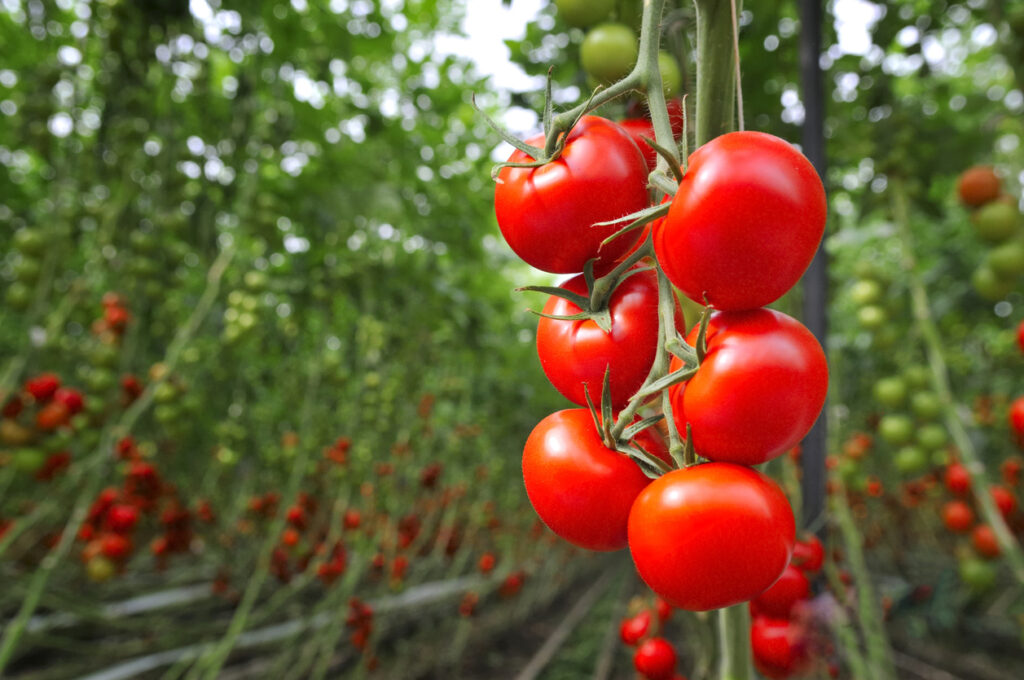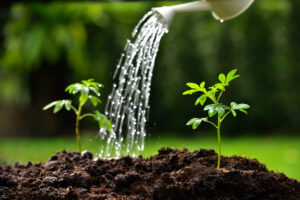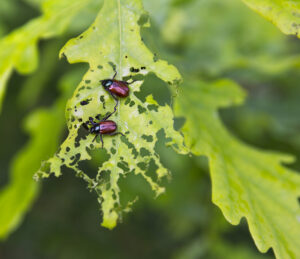
You don’t become healthy by accident. It takes work: eating right, exercising, getting enough sleep, etc.
Your vegetable garden is the same way. It can only remain healthy through proper maintenance. Before heading out to buy plants, seeds or garden fertilizer, New Jersey gardeners might want to read up on a few ways to maintain a healthy vegetable garden.
Give them enough to drink

Make sure your soil has enough moisture throughout the growing season. This will allow your plants to put down sturdy roots and begin to yield fruit.
Keep the top six inches of soil moist when putting in seedlings and young plants. Once the plants are more established, encourage them to spread their roots deeper by wetting at least six inches when the top three inches feel dry.
Adequate moisture is always important, but never more crucial than the period just after planting and when edible parts have begun to form.
Fertilizer, Mulch and Compost
Be careful when applying fertilizer. Too much can burn the roots of your plants and hamper their ability to take in water, which makes them more susceptible to heat, cold and droughts. Conducting a soil test can tell you the level of nutrients your plants and soil need.
If you’re wondering if you have the right garden fertilizer, New Jersey’s Cooperative Extension can offer you a soil test kit.
Adding a layer of organic mulch can help you fend off weeds, maintain moisture in the soil, regulate soil temperature and improve soil health. Apply mulch once the soil has warmed in the spring.
Avoid using yard waste as mulch unless you’re certain of the conditions of your compost pile. Not all the materials within your compost will have broken down enough to be used as mulching material.
Watch out for bugs

Insects can do a lot more than just munch on your plants. The damage that bugs do can leave your veggies susceptible to viral or bacterial infections.
Some insects, such as aphids, can even act as carrier for viruses. And even if an insect attack doesn’t infect your plant, the resulting stress can make it less likely to fight off disease.
Of course, not all bugs are bad. Read our blog post from 2016 on beneficial insects to learn about the types of critters that can help – rather than hurt – your garden.
The right time to harvest
Pick vegetables when they are young to ensure you’re getting the most flavor, and to keep the plants producing. When seeds mature inside certain plants – summer squash, cucumbers and peas, for example – the plants will stop yielding new fruits.
If you’re growing leafy crops like spinach or lettuce, trim it to within two inches of the ground to foster new growth. Root vegetables should be plucked up as needed once they’ve reached edible size.
Fall clean-up
Once the summer growing season is done, it’s time to clean out your garden. A fall clean-up can help you control and deter diseases. Sicknesses such as black spot and daylily leaf strike can be reduced dramatically if you clear away old, dead leaves each fall.
Do you need plants, supplies or garden fertilizer? New Jersey’s Mendham Garden Center can help. Visit one of our three locations to get the things you need for your garden. Our experts will be happy to advise you on whatever you need for a happy, healthy growing season.
